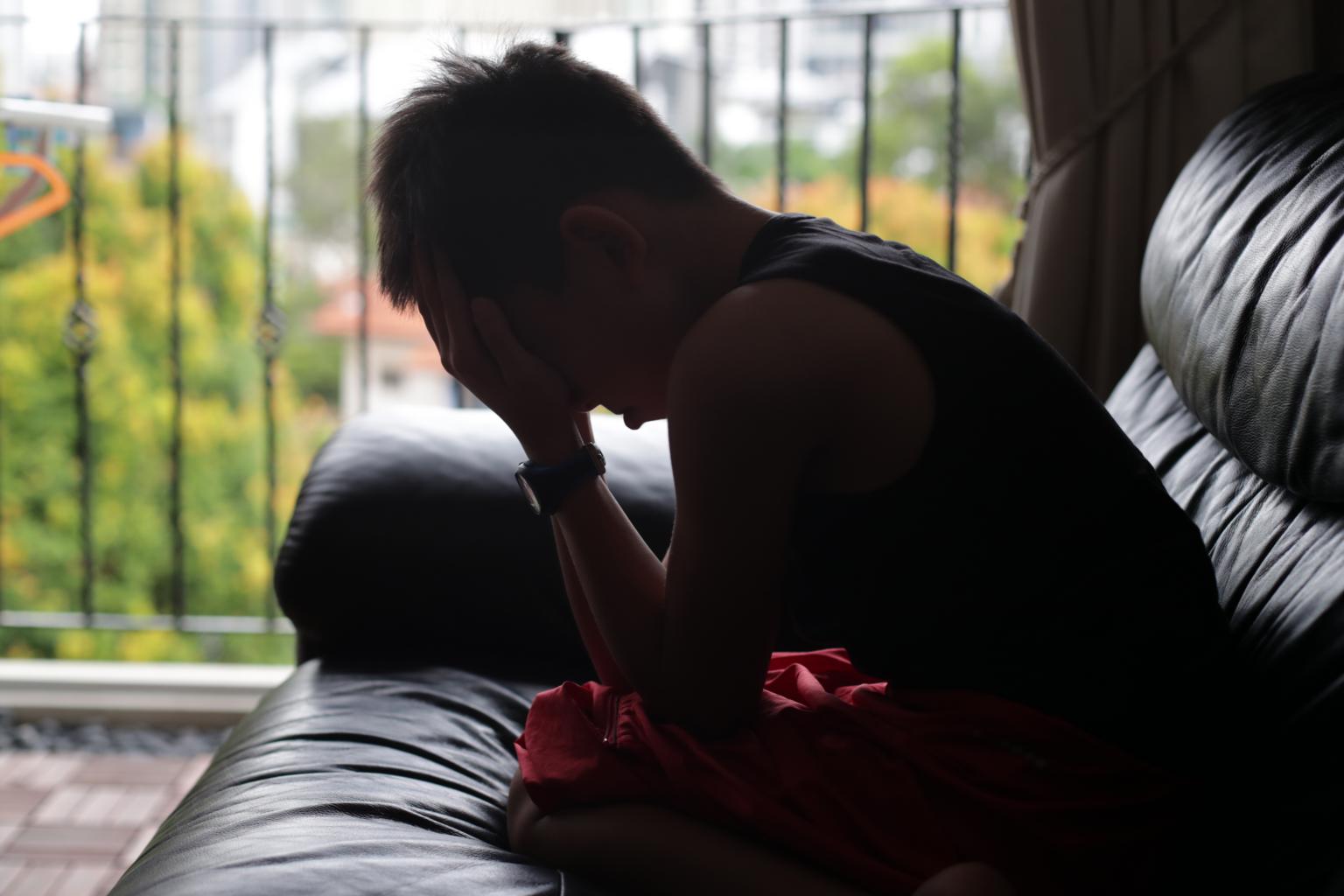More can be done for youth facing mental health issues: President Halimah
Sign up now: Get ST's newsletters delivered to your inbox

Society imposes high expectations on the young, particularly on those who seem to be doing well academically.
PHOTO: ST FILE
Follow topic:
SINGAPORE - Parents, schools and society are ill equipped to deal with young people who are struggling with mental health issues, said President Halimah Yacob in a Facebook post on Friday (July 23), as she called for more to be done to support and understand the youth.
She noted that the impact of mental illness when the onset is at a very young age is usually a lot more severe than when someone gets it much later in life.
Her post comes after the alleged murder of a 13-year-old boy by a 16-year-old boy at River Valley High School on Monday.
It was revealed in court that the 16-year-old had been referred to the Institute of Mental Health two years ago because of a suicide attempt.
Said Madam Halimah: "Attempted suicides are a real cry for help. We don't know the full details, particularly whether he had continued to receive psychiatric help or medication in order to deal with his mental health after that episode.
"We also don't know whether it was due to school or there are other factors affecting him as the causes of mental breakdowns are numerous and sometimes there are more than one factor at play."
She added: "We do know however that parents, schools and our society are ill equipped to deal with this situation."
For parents, the great difficulty is in not knowing whether the child is perhaps going through a growth phase, as "all adolescents with growth hormones raging through their bodies sometimes act out", or whether it is because of something much deeper, she said.
For teachers, already overloaded with work, it is not possible to delve deeply into the issues affecting one child, which will require close monitoring, observation and engagement, said Madam Halimah, noting that there are school counsellors but they may not be well trained on issues affecting mental health.
She also pointed out that society imposes high expectations on the young, particularly on those who seem to be doing well academically.
"We expect to see a linear progression in their performance with no interruption whatsoever, like some well-oiled machinery. Parents compare all the time. We often say that a well-developed, healthy child is better than a troubled child who seems to be shooting all As but is suffering, but we actually send different signals to them," she said.
Sometimes, children with mental health issues may need some time off from school, but the dilemma for parents is what to do with the child at home for a whole year, she said.
She questioned if there were programmes to make it easier for parents to ensure that the child with mental health issues staying at home is meaningfully engaged and not just receiving psychiatric treatment or medication.
Madam Halimah also noted that parents fear the stigma that mental health attracts.
She said: "There is still so much ignorance, stereotype and prejudice in our society against people with mental health issues that parents fear doing more harm than good to their children's future by seeking treatment that they delay with disastrous consequences."
She also said schools need a lot more resources and support to help students with mental health issues.
One way would be for them to partner social service agencies dealing with mental wellness, which could help to run programmes that educate students on mental well-being, she said.
"Some institutes of higher learning have also embedded programmes on mental health to support their students that are quite effective, and which they can share with schools. We could also study the experience of other countries with more developed systems of support for our reference," she said.
"It takes a tragedy like this to start us thinking deeply again about the mental health of our young. Most of our children can cope, are resilient and will grow up well. But not all children are the same. Some do need more help and not just from the school but from everyone."
Getting help
National Care Hotline: 1800-202-6868 (8am - 12am)
Mental well-being
Fei Yue's Online Counselling Service: eC2.sg website (Mon to Fri, 10am to 12pm, 2pm to 5pm)
Institute of Mental Health's Mental Health Helpline: 6389-2222 (24 hours)
Samaritans of Singapore: 1800-221-4444 (24 hours) /1-767 (24 hours)
Singapore Association for Mental Health: 1800-283-7019 (Mon to Fri, 9am to 6pm)
Silver Ribbon Singapore: 6386-1928/6509-0271 (Mon to Fri, 9am to 6pm)
Tinkle Friend: 1800-274-4788 (Mon to Fri, 2.30pm to 5pm)/ Tinkle Friend website (Mon to Thu, 2.30pm to 7pm and Fri, 2.30pm to 5pm)
Institute of Mental Health's Mental Health Helpline: 6389-2222 (24 hours)
Samaritans of Singapore: 1800-221-4444 (24 hours) /1-767 (24 hours)
Singapore Association for Mental Health: 1800-283-7019 (Mon to Fri, 9am to 6pm)
Silver Ribbon Singapore: 6386-1928/6509-0271 (Mon to Fri, 9am to 6pm)
Tinkle Friend: 1800-274-4788 (Mon to Fri, 2.30pm to 5pm)/ Tinkle Friend website (Mon to Thu, 2.30pm to 7pm and Fri, 2.30pm to 5pm)
Counselling
TOUCHline (Counselling): 1800-377-2252 (Mon to Fri, 9am to 6pm)
Care Corner Counselling Centre (Mandarin): 1800-353-5800 (Daily, 10am to 10pm)
Care Corner Counselling Centre (Mandarin): 1800-353-5800 (Daily, 10am to 10pm)

